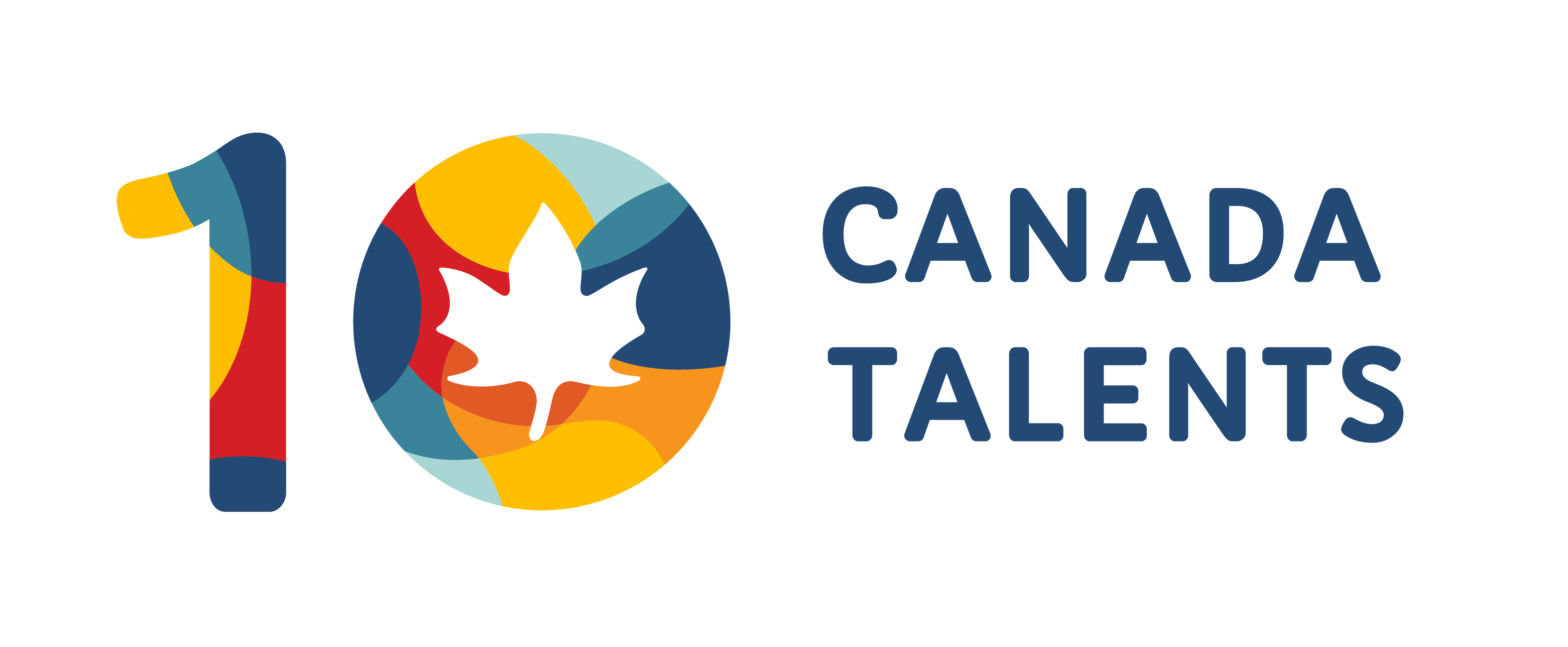Starting a new job in an unfamiliar country can feel overwhelming. As a foreign worker in Canada, you're navigating different workplace cultures, employment laws, and possibly language barriers while establishing yourself professionally. Many skilled immigrants arrive with impressive credentials yet remain unsure about their legal protections. Some worry that asking questions might jeopardize their work permit, while others accept unfair treatment because they don't know their rights.
The truth is, Canada has robust protections for all workers, including temporary foreign workers and permanent residents. Whether you're on a closed work permit, open work permit, or newly landed, the law is on your side.
1. Your Right to Fair Wages and Working Conditions
Let's start with the foundation: you deserve to be paid fairly for your work. In Canada, every province and territory sets its own minimum wage, and your employer must pay you for your services. As of 2025, minimum wages across Canada range from approximately $15 to $17 per hour, depending on your province or territory.
Fair compensation goes beyond hourly rates—you're entitled to payment for all hours worked, including overtime. Moreover, employers classify workers as independent contractors to avoid benefits, but if your employer controls when, where, and how you work, you're an employee with full rights–including the right to refuse unsafe work without fear of reprisal.
2. Understanding Closed vs. Open Work Permits: What They Mean for Your Rights
The type of work permit you hold significantly impacts your employment flexibility, but it doesn't change your fundamental workplace rights. Understanding the difference between these permits is crucial for making informed career decisions.
A closed work permit (employer-specific work permit) ties you to a specific employer, location, and sometimes a specific position. This means you cannot change employers without applying for a new work permit. While this might seem limiting, closed work permit holders have the same workplace rights as any other worker in Canada. Your employer cannot use your permit status as leverage to deny you fair wages, safe working conditions, or other legal protections.
An open work permit provides considerably more flexibility. It allows you to work for any employer in Canada (with few exceptions, such as businesses that provide adult entertainment). Open work permits are typically available to spouses or common-law partners of skilled workers or international students, permanent residence applicants in Canada, refugees, and participants in certain immigration programs.
If you're on a closed work permit and experiencing mistreatment, you may be eligible to apply for an open work permit under the vulnerable worker provisions. This option exists specifically for foreign workers who are experiencing or are at risk of abuse in the workplace. The criteria include situations where you're facing physical, sexual, psychological, or financial abuse from your employer.
Many foreign workers hesitate to leave abusive situations because they fear losing their legal status in Canada. The vulnerable worker program exists to protect you from exactly this situation. Contact the Immigration, Refugees and Citizenship Canada (IRCC) to explain your situation and seek guidance on restoring your status.
3. Protection Against Workplace Abuse and Harassment
Every worker in Canada has the right to a workplace free from harassment, discrimination, and abuse. The Workplace Harassment and Violence Prevention Program extends to all foreign workers, regardless of immigration status.
Workplace harassment can take many forms: unwelcome comments or conduct based on your race, national origin, religion, gender, or other protected grounds; sexual harassment including unwanted touching, comments, or requests for sexual favors; bullying and intimidation; threats related to your immigration status; and psychological abuse such as isolation, excessive monitoring, or deliberate humiliation.
Your employer cannot threaten to report you to immigration authorities as a way to control your behavior or force you to accept unfair conditions. Making such threats is illegal and constitutes abuse. Similarly, withholding your passport, work permit, or other important documents is a form of control that violates your rights.
The Canadian Human Rights Act prohibits discrimination based on numerous grounds, including race, national or ethnic origin, colour, religion, age, sex, sexual orientation, gender identity or expression, marital status, family status, genetic characteristics, disability, and conviction for an offence for which a pardon has been granted or a record suspended.
If you experience discrimination or harassment, you have several options. First, if you feel safe doing so, clearly communicate to the person that their behavior is unwelcome. Document everything—keep records of dates, times, what was said or done, and any witnesses. Report the behavior to your supervisor, human rights officer, or human resources department. If your employer doesn't take appropriate action, you can file a complaint with your provincial or territorial human rights commission, or with the Canadian Human Rights Commission if you work in a federally regulated industry.
Many foreign workers worry that making a complaint will lead to job loss. While this fear is understandable, Canadian law prohibits retaliation against workers who make good-faith complaints about harassment or discrimination. If you experience retaliation, that becomes an additional violation you can report.
4. Your Rights During Illness, Injury, and Leave
Life doesn't stop because you're working in a new country. You may get sick, have a baby, or need to care for a family member. Canadian employment standards ensure you can take time off work when needed without losing your job.
Every province and territory provides various types of leave, though the specifics vary by location. Common leaves include sick leave, maternity leave, parental leave , family responsibility leave, bereavement leave, and medical leave for serious medical conditions.
You cannot be fired for taking protected leave. Your job is legally protected during these absences, and your employer must allow you to return to your position or a comparable one when you're ready.
If you suffer a work-related injury or illness, you're covered by workers' compensation regardless of your immigration status. Workers' compensation provides wage replacement benefits, medical treatment and rehabilitation, and compensation for permanent injuries. You don't need to prove your employer was at fault—if you were injured during the course of your employment, you're likely covered.
Filing a workers' compensation claim is straightforward. Report the injury to your employer immediately, even if it seems minor. Seek medical attention and inform the healthcare provider that it's a workplace injury. Your employer must provide you with the necessary claim forms and report the injury to the workers' compensation board. Complete and submit your claim form as soon as possible.
Some workers fear that filing a claim will anger their employer or lead to termination. However, it's illegal for employers to penalize workers for filing legitimate workers' compensation claims. Additionally, while you're receiving workers' compensation benefits, you have job protection—your employer cannot terminate you simply because you're unable to work due to a workplace injury.
5. When Things Go Wrong: Filing Complaints and Seeking Justice
Despite legal protections, violations do occur. Knowing how to file a complaint and who to contact can make the difference between resolving an issue and enduring continued mistreatment.
For most employment standards violations—such as unpaid wages, improper termination, or denial of entitled leave—contact your provincial or territorial employment standards branch. Each province has its own process, but generally, you'll need to file a written complaint detailing the violation, provide supporting documentation (pay stubs, employment contract, correspondence with your employer), and submit within the required time limit (often within six months to two years of the violation).
You do not need a lawyer to file an employment standards complaint, and the process is designed to be accessible. Many employment standards offices provide complaint forms in multiple languages and offer interpretation services.
For workplace safety concerns, contact your provincial or territorial occupational health and safety agency. These agencies can conduct workplace inspections and order employers to correct dangerous conditions.
If you've experienced discrimination or harassment, file a complaint with the appropriate human rights commission—the Canadian Human Rights Commission for federally regulated workplaces, or your provincial/territorial human rights commission for most other workplaces.
For issues specifically related to foreign workers, including abuse by employers or recruiters, contact Service Canada's Temporary Foreign Worker Program at 1-800-367-5693. You can report suspected abuse through their confidential tip line. The IRCC also investigates employer non-compliance.
Many settlement agencies across Canada provide free services to newcomers, including assistance with employment issues. They can help you understand your rights, navigate the complaint process, and connect you with legal support if needed. Organizations like the Workers' Action Centre (Ontario), Immigrant Services Society (British Columbia), and the Alberta Workers' Health Centre specifically support immigrant workers.
If you fear retaliation for making a complaint, remember that retaliation is illegal and can result in additional penalties for your employer. Document any retaliatory actions and report them to the same agency handling your original complaint.
6. Access to Healthcare and Social Benefits
Foreign workers’ have the right to access healthcare providers. If you hold a valid work permit in Canada, you can access quality healthcare through provincial health insurance programs. Each province offers its own plan—such as OHIP in Ontario or RAMQ in Quebec—ensuring you receive the medical care you need during your stay.
Aside from that, one may qualify for important social benefits depending on their work permit type and residency status. Programs like Employment Insurance (EI) provide support during periods of unemployment, while the Canada Pension Plan (CPP) helps secure your financial future through retirement savings contributions.
Taking the Next Step
Building a successful career in Canada extends beyond employment; it requires working conditions that enable professional and personal growth. You brought valuable skills and experience to this country, and you deserve an environment that recognizes and respects your contributions. Remember that asking about your rights demonstrates being informed, not difficult, and speaking up about unfair treatment protects both you and future workers from exploitation.
Seeking help when needed shows wisdom, not weakness. Canada provides legal protections for workers' rights and resources designed to help you understand and exercise them. You've already demonstrated tremendous courage by building a new life in a new country—don't hesitate to show that same courage when standing up for fair workplace treatment. Your immigration journey required strength and determination; apply those same qualities to ensuring you work in conditions that honor your dignity and contributions.
Welcome to Canada, where your rights as a worker are protected by law—and where resources exist to help you understand and exercise those rights. And if you find yourself unsure how to begin your journey here, we at Canada Talents, are here to help.


